Valpoi Victory
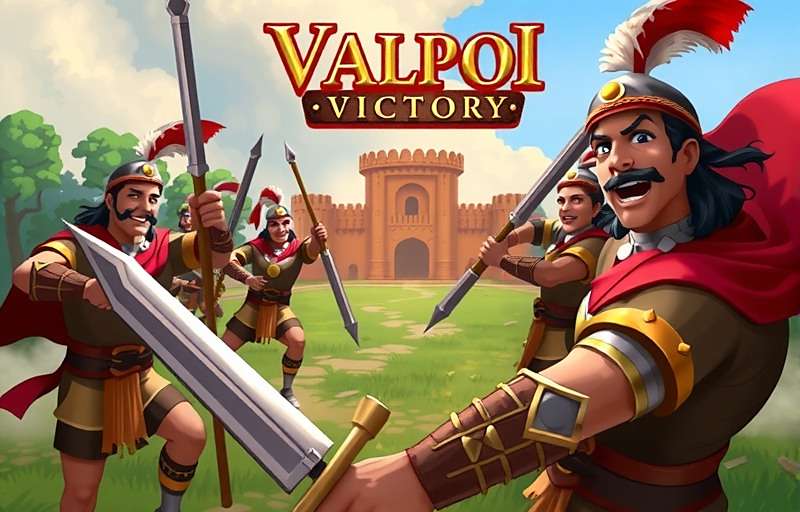
About Valpoi Victory
Valpoi Victory is India's most popular strategic battle game that has captured the imagination of gamers across the country since its launch in mid-2022. Developed by a team of military history enthusiasts and gaming experts from Pune, this game brings together India's rich martial heritage and modern strategic gameplay in an unprecedented way.
The name Valpoi Victory draws inspiration from Valpoi, a historic town in Goa nestled between the Western Ghats, which has witnessed numerous battles throughout Indian history due to its strategic location. The word "Victory" signifies the game's focus on strategic triumph through wit rather than brute force – a reflection of India's traditional warfare philosophy that values intelligence over numbers.
Unlike many Western strategy games that focus solely on conquest and destruction, Valpoi Victory incorporates the Indian concept of "Dharma Yuddha" (righteous war) where players must consider ethical implications alongside strategic advantages. This unique philosophical approach has resonated deeply with Indian gamers who appreciate seeing their cultural values reflected in gameplay.
What truly distinguishes Valpoi Victory from other strategy games is its painstaking attention to historical accuracy. The game features over 50 authentic Indian battle formations, 30 types of traditional weaponry, and detailed recreations of famous battlefields from Indian history – from the Kalinga War to the Battle of Haldighati.
Parents and educators particularly value Valpoi Victory for its educational content that teaches players about India's military history, strategic thinking, and regional warfare techniques. Many schools in Rajasthan, Punjab, and Karnataka have even incorporated the game into their history and mathematics curricula to teach students about ancient battle strategies and logistics.
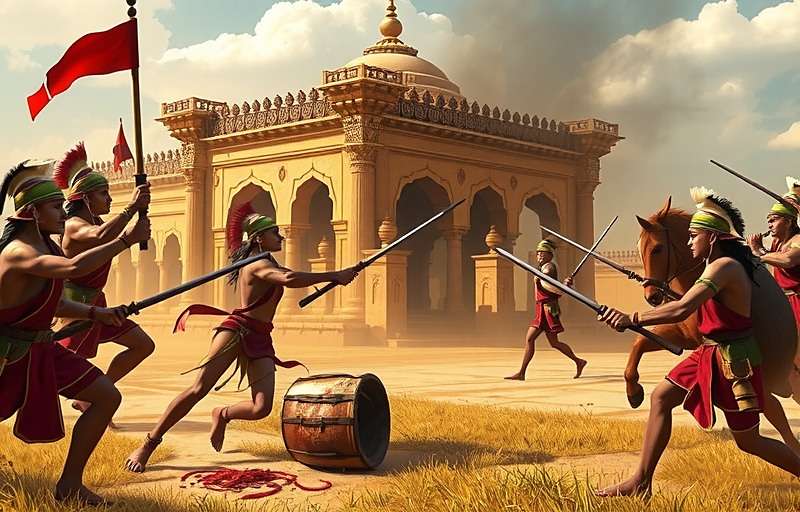
Valpoi Victory has been praised for its balanced approach to depicting historical conflicts, presenting multiple perspectives rather than a single narrative. This has helped foster meaningful discussions among players about India's complex history and the diverse cultures that have shaped it.
The game's development team includes historians from Delhi University, weapon experts from the National Museum, and cultural consultants from various regions to ensure that each aspect of Valpoi Victory respects India's diverse heritage while creating an engaging gameplay experience.
One of the most appreciated aspects of Valpoi Victory is its emphasis on non-violent resolution where possible, reflecting traditional Indian values of diplomacy and negotiation. Players are often rewarded more for strategic alliances and peaceful settlements than for outright conquest.
How to Play Valpoi Victory
Basic Gameplay Mechanics
In Valpoi Victory, players take on the role of a strategic commander leading armies through various historical and fictional scenarios set across different regions of India. The game begins with the player choosing their starting region – each with its own unique military traditions, unit types, and strategic advantages.
Gameplay revolves around three core elements: resource management (including soldiers, weapons, food, and gold), strategic positioning of forces, and diplomatic relations with other factions. Success in Valpoi Victory requires balancing all three elements rather than focusing solely on military might.
Each battle in Valpoi Victory is turn-based, allowing players to carefully consider their moves. The game incorporates realistic terrain effects based on India's diverse geography – from the deserts of Rajasthan that slow down heavy units to the forests of Central India that provide ambush opportunities.
Unlike many strategy games that use generic unit types, Valpoi Victory features historically accurate Indian warrior classes such as the Rajput cavalry, Maratha light infantry, Sikh warriors, Naga archers, and many more, each with their own strengths, weaknesses, and special abilities.
Special Features of Valpoi Victory
The "Dharma System" is one of Valpoi Victory's most innovative features. This morality system tracks the ethical implications of your decisions, affecting how other factions perceive you and how your own troops morale holds. Making decisions that align with righteous conduct unlocks special abilities and alliances.
"Ancient Wisdom" is another unique feature where players can consult historical figures like Chanakya, Thiruvalluvar, and Guru Gobind Singh for strategic advice. These consultations provide philosophical insights alongside practical tactics, deepening both gameplay and educational value.
Valpoi Victory incorporates India's seasonal patterns into gameplay through its "Ritu Chakra" (season cycle) system. Monsoons may hinder movement but replenish water supplies, while dry seasons may restrict foraging but allow faster troop movements across certain terrains.
The game's "Raj Sabha" (council) feature allows players to assemble a council of advisors from different regions and backgrounds, each offering unique perspectives and bonuses. This encourages players to seek diverse viewpoints, reflecting India's tradition of collective decision-making.
Multiplayer modes in Valpoi Victory allow players to form "Sanghas" (alliances) with friends, competing in regional and national tournaments. What makes this unique is that alliances must include players from different regions to unlock special cooperative abilities, promoting cross-cultural teamwork.
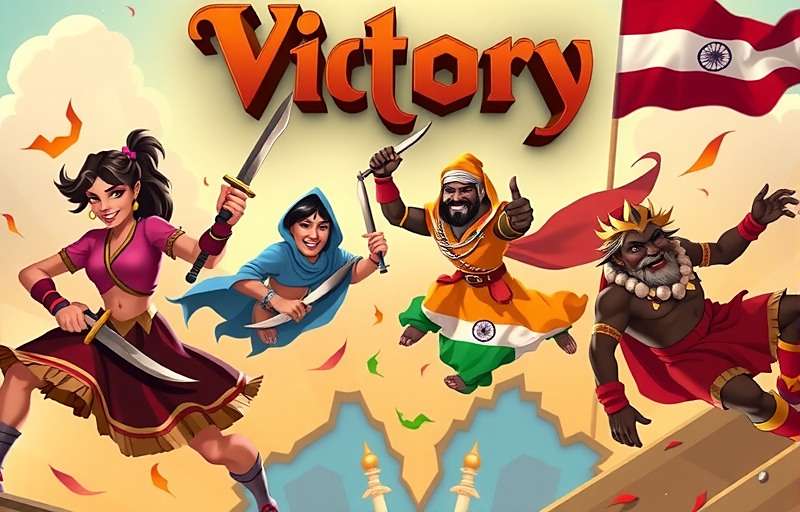
Campaigns and Modes
Valpoi Victory offers several distinct game modes to cater to different player preferences while maintaining its focus on Indian strategic traditions.
The "Historical Campaigns" mode allows players to relive and potentially rewrite key battles from Indian history. From the Mauryan conquests to the Anglo-Mysore Wars, each campaign is meticulously researched and features period-accurate units, tactics, and objectives.
In "Regional Challenges," players must defend specific regions against historical threats using only local military traditions. For example, the Rajasthan challenge requires players to master Rajput cavalry tactics, while the Tamil Nadu challenge focuses on Chola naval strategies and infantry formations.
"Diplomatic Mastery" mode emphasizes negotiation over warfare, challenging players to unite regions through alliances, marriages, and trade rather than conquest. This mode has become particularly popular among female players who appreciate its focus on relationship-building over combat.
The "Random Map" mode generates unique scenarios with procedural terrain, allowing for endless replayability while maintaining the game's Indian setting and strategic depth. This mode is popular for quick matches and tournament play.
"Epic Conquest" is the game's longest mode, spanning multiple generations where players must build a lasting empire that can withstand the test of time through a combination of military strength, cultural development, and good governance – reflecting the ideal of "Ram Rajya" in Indian philosophy.
Download Statistics and Popularity
Valpoi Victory has achieved remarkable growth since its launch, crossing the 10 million download mark in just 11 months – a significant milestone for a strategy game in India's mobile gaming market, which is dominated by action and casual games.
What's particularly notable about Valpoi Victory's player base is its gender balance compared to other strategy games – with women making up 41% of players, significantly higher than the industry average of around 25% for the strategy genre. Developers attribute this to the game's emphasis on diplomacy and strategic thinking over brute force.
The game's player demographics span a wide age range, with 28% of players between 13-18 years, 43% between 19-35 years, and 29% aged 36 and above. This broad appeal has helped create a diverse community where different generations share strategic insights based on their varied life experiences.
Rajasthan leads in player count, followed closely by Punjab, Maharashtra, and Tamil Nadu – regions with rich martial histories that players recognize and connect with in Valpoi Victory's gameplay. The game's popularity in these states has even led to local historical societies collaborating with developers on content updates.
Valpoi Victory sees significant spikes in player activity during school holidays and major festivals. The highest engagement levels occur during Diwali, when the game typically releases special historical campaigns and limited-time events that tie into the festival's themes of victory over adversity.
Player spending within Valpoi Victory is relatively low compared to other popular mobile games, with 87% of players never making in-app purchases. This is by design, as developers wanted to ensure the game remains accessible to players across all economic backgrounds in India.
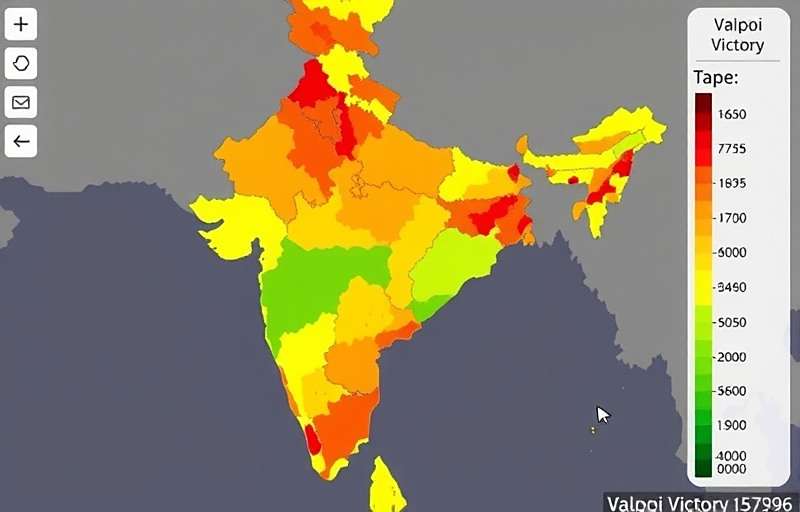
Educational institutions form a significant part of Valpoi Victory's user base, with over 1,500 schools and colleges registered as institutional users. These institutions use the game's educational mode to teach students about history, geography, and strategic thinking in an engaging way.
The game's popularity extends beyond major cities, with 39% of players located in rural areas – a higher percentage than most Indian mobile games. This broad reach is attributed to the game's optimization for low-bandwidth connections and lower-end smartphones, ensuring accessibility across India's diverse digital landscape.
Valpoi Victory has also gained traction among India's military community, with serving and retired armed forces personnel praising the game's realistic depiction of strategic thinking and its emphasis on ethical considerations in warfare.
What Indian Players Are Saying
Players from across India have embraced Valpoi Victory for its unique blend of historical accuracy, strategic depth, and cultural relevance. The game's review section reflects a diverse range of perspectives from players of different ages, backgrounds, and regions.
"As a retired army officer, I'm impressed with Valpoi Victory's realistic approach to strategy. The game correctly emphasizes terrain analysis, logistics, and morale – elements often overlooked in other strategy games. My grandchildren and I play together, and it's wonderful to see them learning real strategic principles while having fun."
"I never thought I'd enjoy a strategy game, but Valpoi Victory's emphasis on diplomacy won me over! I love the Chola navy campaigns that let me explore our maritime history. The game helped me understand how Tamil kingdoms dominated trade routes through clever alliances, not just military power. More female historical figures would be a great addition!"
"Valpoi Victory gets Sikh warfare philosophy right – the emphasis on honor, intelligence, and community. The Khalsa army units move and fight exactly as described in our historical records. My son now asks me about our warrior traditions because of this game, which makes me very proud as a father."
"As a history professor, I'm delighted by Valpoi Victory's educational value. The game's historical campaigns are remarkably accurate while remaining engaging. I've incorporated it into my university curriculum, and my students' understanding of medieval Indian politics has improved dramatically. The attention to regional differences is particularly commendable."
"Valpoi Victory has great gameplay, but I wish there was more content about Andhra Pradesh's Kakatiya dynasty. The strategies feel a bit North India-focused sometimes. Having said that, the multiplayer Sangha mode is fantastic – my friends from different states and I form alliances that mirror real Indian unity!"
"It's wonderful to see Northeast Indian warrior traditions represented in Valpoi Victory! The Ahom kingdom campaign accurately shows how our ancestors used guerrilla tactics against larger armies. The game runs smoothly even on my basic smartphone, which is important here in Assam where not everyone has high-end devices."
Common themes in player feedback highlight Valpoi Victory's success in balancing entertainment with education, its respect for regional diversity, and its emphasis on strategic thinking over simple combat. Many players mention how the game has sparked conversations with family members about their regional history and traditions.
Critical feedback often focuses on requests for more regional content, with players from various states eager to see their specific historical warriors and battles represented. The development team has responded by establishing regional advisory boards to ensure future updates better represent India's diverse martial heritage.
Parents frequently praise Valpoi Victory for encouraging their children to research historical events mentioned in the game, creating a positive feedback loop between gameplay and real-world learning. Teachers report similar benefits in classroom settings.
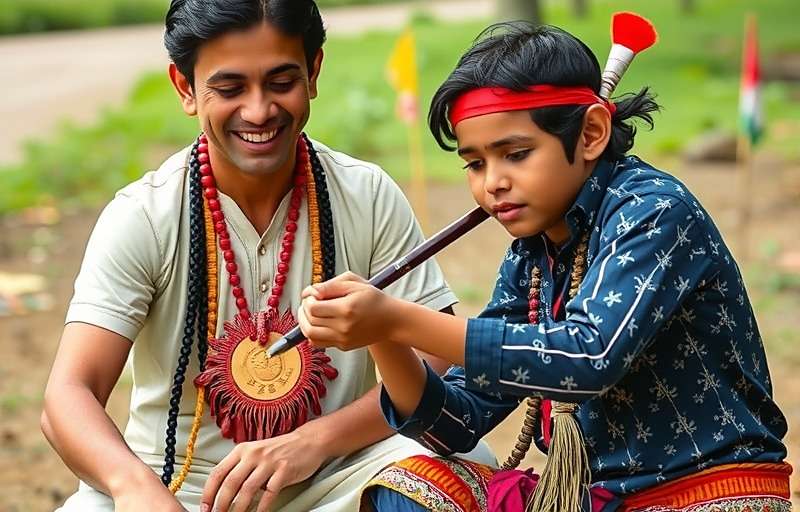
Professional reviewers have also recognized Valpoi Victory's achievements. India Gaming Weekly awarded it "Best Strategic Game of 2023" and praised its "authentic representation of India's diverse martial traditions without resorting to stereotypes."
Historical publications have taken notice as well, with The Indian Historical Review featuring an article on how Valpoi Victory is helping revive interest in regional military history among younger generations who might otherwise find the subject dry or irrelevant.
Regional Versions and Language Support
Valpoi Victory stands out for its exceptional regional customization, going far beyond simple language translation to create truly localized experiences that reflect India's diverse cultural and martial traditions.
Language Options in Valpoi Victory
Currently, Valpoi Victory supports 18 Indian languages in addition to English, ensuring that players across the country can enjoy the game in their mother tongue. These include Hindi, Bengali, Telugu, Marathi, Tamil, Urdu, Gujarati, Kannada, Malayalam, Odia, Punjabi, Assamese, Kashmiri, Konkani, Manipuri, Nepali, Sindhi, and Bhojpuri.
What sets Valpoi Victory's language support apart is its use of region-specific terminology rather than generic translations. For example, military ranks use authentic local titles rather than generic terms like "captain" or "general," preserving the cultural nuances of each language.
The game's voice acting is performed by native speakers who understand the cultural context behind the dialogue, ensuring proper pronunciation and emotional delivery that resonates with regional players. Battle cries, for instance, use authentic historical phrases from each region's warrior traditions.
Interface elements in Valpoi Victory are also culturally adapted, with design elements reflecting regional artistic traditions. The Punjabi version uses elements of Phulkari embroidery in its UI, while the Tamil version incorporates Chola-style temple carvings, creating a fully immersive cultural experience.
Regional Content Differences
While Valpoi Victory maintains a consistent core gameplay experience across all versions, each regional edition includes unique content that highlights local martial history, tactics, and heroes that may be less familiar to players from other parts of India.
The North Indian version features extensive content on Rajput chivalry, Sikh warrior traditions, and Mughal military strategies. Unique units include Rajput horsemen with their distinctive armor, Sikh Akali warriors, and Mughal artillery units based on historical records from the Red Fort archives.
South Indian versions emphasize the martial traditions of the Chola, Pandya, Vijayanagara, and Mysore kingdoms. Players can command war elephants with specialized armor, naval units that reflect South India's maritime prowess, and warrior classes like the Maravar and Kallars known for their fighting skills.
East Indian versions highlight the warrior traditions of Bengal, Odisha, and Assam, including the Ahom kingdom's specialized guerrilla units, the Paik soldiers of Odisha, and the martial arts traditions of Bengal that influenced battle tactics. The terrain features more river systems, reflecting the region's geography.
West Indian versions focus on Maratha light cavalry tactics, the warrior traditions of Rajasthan's desert kingdoms, and the naval strategies of the Siddis of Janjira. Unique gameplay elements include camel-mounted units and specialized fortifications adapted to desert conditions.
Northeast Indian versions introduce players to the unique warrior cultures of the region, including the Naga warrior traditions, the Ahom military system, and the Khasis' mountain warfare techniques. These versions feature specialized units adapted to hilly terrain and dense forests.
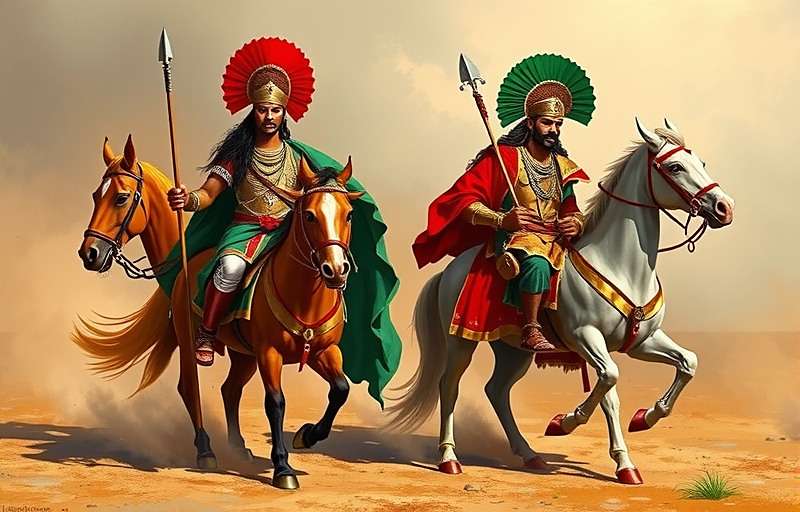
Each regional version of Valpoi Victory includes unique campaign narratives that center on local historical events. For example, the Tamil version features an extensive campaign on Rajendra Chola's Southeast Asian expeditions, while the Assamese version focuses on the Ahom kingdom's resistance against Mughal expansion.
Regional versions also incorporate local strategic philosophies. The Kerala version emphasizes naval diplomacy and trade route protection, reflecting the region's historical focus on maritime commerce, while the Punjab version highlights the concept of "dharamyudh" (righteous war) central to Sikh military philosophy.
Even the game's music and sound design vary by region, with authentic instruments and musical styles from each area. The Rajasthan version features traditional Rajput battle music with dhol and shehnai, while the Manipur version incorporates Pung cholom drumming patterns that historically accompanied warriors into battle.
These regional adaptations have made Valpoi Victory not just a game but a cultural bridge, introducing players to India's diverse martial heritage while allowing them to take pride in their own regional traditions.
Top Strategies from Indian Players
Indian players have developed sophisticated strategies for Valpoi Victory that draw on both modern gaming techniques and traditional Indian strategic thinking from texts like the Arthashastra and the Tirukkural. Here are some of the most effective approaches from top players across the country:
General Strategic Principles
- Master the "Five Elements" system – troops, terrain, supplies, alliances, and morale. Balancing these elements is more important than having the largest army in Valpoi Victory.
- Study the "Dharma" system carefully. Maintaining high moral standing unlocks powerful allies and special abilities that can turn the tide of battle without fighting.
- Pay attention to seasonal cycles. What works in the dry season (rabi crops) may fail during monsoons (kharif), just like in real Indian agriculture and warfare.
- Invest in intelligence gathering before attacking. Spies and scouts, inspired by Chanakya's espionage system, can reveal enemy weaknesses and prevent ambushes.
- Build alliances based on complementary strengths. A coastal kingdom paired with a mountainous kingdom creates a balanced force that's hard to defeat.
- Know when to avoid battle entirely. Many of Valpoi Victory's most challenging scenarios can be solved through clever diplomacy rather than combat.
"The wise ruler conquers through alliance, gold, and only then force." This ancient principle applies perfectly to Valpoi Victory. Always attempt diplomatic solutions first, then use economic pressure, and reserve military action as a last resort. This approach maintains your Dharma rating while achieving objectives with fewer losses.
Region-Specific Strategies
Players from different parts of India have developed unique approaches to Valpoi Victory that leverage their understanding of local geography, history, and traditional tactics:
For North Indian Players
Master the "Rajput Flank Attack" – use fast-moving cavalry units to circle around enemies while your main force holds the center. This classic Rajput tactic works exceptionally well on the plains of Punjab and Haryana in the game.
Utilize forts effectively. North Indian campaigns reward players who understand how to use forts as both defensive positions and bases for launching strategic raids, as the Rajputs did against Mughal forces historically.
For South Indian Players
Control waterways to dominate South Indian maps. Just as the Cholas built their empire through naval power, controlling rivers and coastal areas in Valpoi Victory provides supply lines that are hard to cut and allows rapid troop movement.
Employ the "Vijayanagara Formation" – heavy infantry in the front, archers behind them, and war elephants on the flanks. This classic South Indian battle arrangement is particularly effective against northern cavalry charges.
For East Indian Players
Use the "Ahom Guerrilla Tactics" in forested areas – hit-and-run attacks that harass enemy supply lines rather than engaging in direct battles. This strategy, which historically defeated larger Mughal armies, works brilliantly in the game's Assam and Bengal campaigns.
Master river crossings. East Indian maps feature more water barriers than other regions, so developing specialized boat units and knowing when to ford rivers (based on seasonal water levels) provides a significant advantage.
For West Indian Players
Employ "Maratha Light Cavalry" tactics – fast-moving units that strike quickly and retreat before the enemy can counterattack. This hit-and-run approach, which helped the Marathas conquer much of India, is devastating in the game's Deccan and Gujarat maps.
Use mountain passes strategically. The Western Ghats in Valpoi Victory's Maharashtra and Goa maps provide perfect ambush points if you can control the high ground, just as Shivaji did against the Mughals.
For Northeast Indian Players
Develop "Naga Ambush Tactics" in hilly terrain – hiding units in forested areas and attacking from multiple directions simultaneously. This strategy, based on historical Naga warfare techniques, is extremely effective in the game's mountainous Northeast maps.
Master the "Ahom Naval Defense" – using riverine forces to protect supply lines and prevent enemy movement along waterways. This approach can turn the Brahmaputra-like rivers in the game into natural defense barriers.
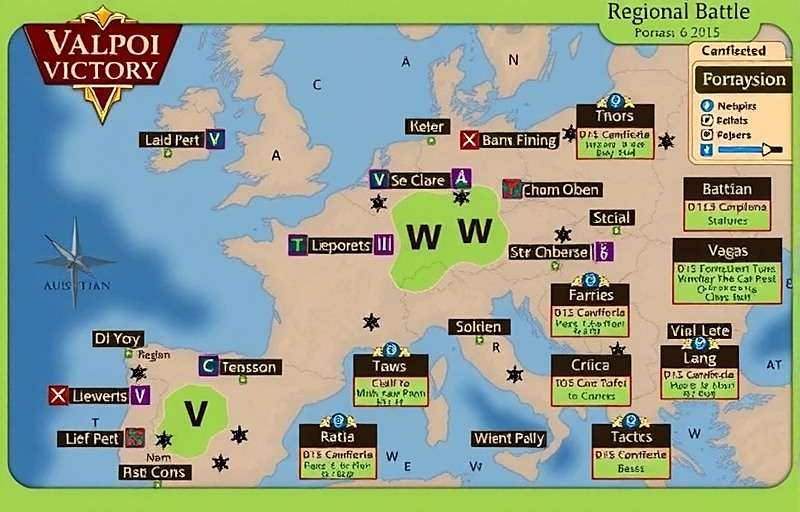
Pro Gamer Techniques
India's top Valpoi Victory players have developed advanced strategies that combine deep game knowledge with historical insights:
- "Study real Indian topography before playing regional campaigns. The game's terrain closely matches actual geographical features, and knowing where rivers, mountains, and deserts are located gives you a huge advantage." - Vikram Singh, Jaipur (National Tournament Finalist)
- "Master the art of 'Gift Diplomacy' from the Arthashastra. Small gifts at the right time can secure alliances that would otherwise require much larger concessions. This is especially effective in the game's diplomatic mode." - Meera Iyer, Bengaluru (Top 0.1% Player)
- "Understand unit morale patterns. Troops fight better when commanded by leaders from their own region – mixing regional units with appropriate commanders creates unbeatable combinations." - Gurpreet Singh, Ludhiana (Regional Champion)
- "Learn historical battle outcomes but don't be bound by them. The best players know when to follow historical tactics and when to innovate – that's where true victory comes from in Valpoi Victory." - Dr. Karthik Nair, Thiruvananthapuram (Strategy Guide Author)
- "Pay attention to the 'Elephant Cycle' in South Indian campaigns. War elephants are powerful but have specific weaknesses during monsoon seasons that clever opponents can exploit." - Lakshmi Narayanan, Chennai (Top 1% Player)
Counter-Strategies for Common Tactics
Top Valpoi Victory players know how to counter even the most effective enemy strategies. Here are some advanced counter-tactics:
Against Rajput cavalry charges: Deploy spearmen in a square formation with archers behind them. This classic anti-cavalry formation, used effectively by the Marathas, can stop even the most determined charge.
Against Maratha hit-and-run tactics: Secure your supply lines with fortified outposts and use fast-moving light infantry to screen your main force. This denies the enemy their hit-and-run opportunities.
Against Chola naval dominance: Develop specialized riverine units that can operate in shallow waters where larger ships can't go, and use land-based archers to target enemy ships near shore.
Against Ahom guerrilla tactics: Clear forested areas around your camps to eliminate ambush points, and use local guides (recruited through diplomacy) to reveal hidden enemy units.
Against Sikh warrior charges: Use staggered formations with reserves to absorb the initial impact, then counterattack the flanks when their momentum is broken.
These counter-strategies, like all elements of Valpoi Victory, are based on historical military solutions that Indian commanders developed over centuries of warfare.
Competitive Tournaments and Events
Valpoi Victory has developed a thriving competitive scene that combines strategic gameplay with India's rich tradition of intellectual competition. These tournaments attract players from across the country and have become important community events.
National Championship Series
The Valpoi Victory National Championship is India's premier strategic gaming tournament, with regional qualifiers in 32 cities leading to a grand finale. The 2023 championship, held in New Delhi's Indira Gandhi Indoor Stadium, attracted over 8,000 participants and was streamed live to over 2 million viewers.
What makes these tournaments unique is their emphasis on both strategic skill and historical knowledge. Participants are tested not just on their gameplay abilities but also on their understanding of the historical contexts behind the scenarios, with quiz segments contributing to final scores.
The 2023 champion, a 22-year-old history student from Jaipur named Aditya Sharma, received a prize of ₹12 lakh, a scholarship for military history studies, and an opportunity to consult with the Valpoi Victory development team on upcoming historical campaigns.
Tournament rules emphasize fair play and sportsmanship, reflecting the Indian concept of "maryada" (honorable conduct) that's also featured in the game's Dharma system. Players who use unethical tactics face penalties, even if they lead to victory.
Regional Battle Leagues
Throughout the year, Valpoi Victory sponsors Regional Battle Leagues in each state, with teams representing different cities competing for regional pride and qualification points for the national championship.
These leagues have developed intense rivalries that mirror historical regional competitions while promoting healthy sportsmanship. The Rajasthan-Maharashtra rivalry, for example, draws huge crowds and online viewership, with matches often featuring scenarios based on historical conflicts between Rajput and Maratha forces.
Each regional league incorporates local historical themes into their tournament structure. The Tamil Nadu league, for instance, uses only Chola and Pandyan units, while the Punjab league features scenarios based on Sikh-Mughal conflicts.
Regional winners receive recognition from state tourism boards, with many states now promoting their Valpoi Victory teams as part of cultural exchange programs with other states.
Educational Tournaments
Recognizing the game's educational value, Valpoi Victory organizes separate tournaments for schools and colleges, with teams of students competing to solve historical scenarios and demonstrate strategic thinking.
The 2023 Inter-School Championship saw over 500 schools participate, with the winning team from a government school in Patna receiving computer equipment and a special historical workshop for their school. The students credited their victory to lessons learned from their history teacher, who used Valpoi Victory in their curriculum.
These educational tournaments include a research component where teams must submit essays explaining the historical context of their strategies, encouraging deep engagement with India's military history beyond just gameplay.
Special Event Tournaments
Valpoi Victory organizes special tournaments tied to national holidays and historical anniversaries, creating meaningful connections between gameplay and real-world events.
- Republic Day Tournament (January 26) – Teams represent different states in a cooperative scenario to unite India against a common challenge
- Kargil Vijay Diwas Special (July 26) – Modern military strategy tournament honoring India's armed forces
- Chhatrapati Shivaji Maharaj Jayanti Event (February) – Focus on Maratha warfare tactics and guerrilla strategies
- Rani of Jhansi Tournament (November) – Special event highlighting women warriors from Indian history
- Chanakya Strategy Challenge (September) – Diplomacy-focused tournament with minimal combat
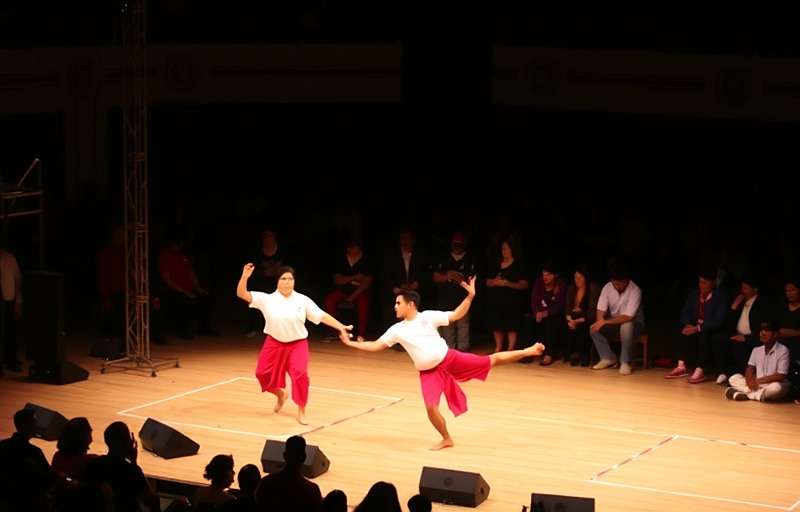
Community Organized Events
The Valpoi Victory community organizes thousands of local tournaments throughout the year, from small neighborhood competitions to large city-wide events. These grassroots tournaments often combine gameplay with cultural activities.
In Pune, the annual "Maratha Strategy Festival" pairs Valpoi Victory tournaments with demonstrations of traditional Indian martial arts like kalaripayattu and gatka. Similar events in Chennai combine gameplay with lectures on Chola naval history.
Many community events raise funds for historical preservation. The Jaipur "Fortress Defense Tournament" raises money for the restoration of local forts, with scenarios based on actual historical sieges of those very fortresses.
These community events have become important social gatherings that bring together people of different ages and backgrounds through their shared interest in Valpoi Victory and Indian history, fostering intergenerational dialogue and community cohesion.
Player Community and Cultural Impact
The Valpoi Victory community is one of India's most active gaming communities, with players organizing both online and offline activities that extend beyond gameplay to include historical research, cultural preservation, and educational initiatives.
Sangha Alliances
Sanghas (alliances) are the foundation of Valpoi Victory's social structure, with over 150,000 active Sanghas comprising players from across India. These groups range in size from small friends-and-family alliances to large organizations with thousands of members.
What distinguishes Valpoi Victory Sanghas from typical gaming guilds is their often educational focus. Many Sanghas organize historical research groups that study the real battles and strategies depicted in the game, sharing their findings through community forums and social media.
The largest Sanghas, like "Bharat Ke Senapati" (India's Commanders) with over 15,000 members, have established regional chapters that organize offline meetups, historical site visits, and even reenactments of historical battles featured in the game.
Sanghas often adopt historical names and structures, with some modeled after the councils of ancient Indian kingdoms. The "Raj Sabha Sangha" from Delhi, for example, makes decisions through a council system inspired by Mughal court procedures, teaching members about historical governance while managing their gaming activities.
Historical Research Community
Unique among gaming communities, Valpoi Victory has spawned a vibrant historical research community where players collaborate to uncover and share information about India's military history.
The "Valpoi Historical Society" is a player-run organization with over 50,000 members that publishes quarterly journals on Indian military history, with many articles focusing on lesser-known regional warrior traditions that players have discovered through the game.
Players frequently contribute to historical knowledge by sharing information from local traditions and oral histories that may not be well-documented in academic sources. This grassroots historical preservation has led to several discoveries, including previously unknown details about certain battle formations used in 18th-century Assam.
Several professional historians now participate in Valpoi Victory's community forums, engaging with players and using their questions and insights to inform their own research. This unique collaboration between academic and amateur historians has enriched both the game and historical scholarship.
Content Creators and Educators
The Valpoi Victory content creator community has grown rapidly, with thousands of players producing strategy guides, historical explainers, and gameplay videos in multiple Indian languages.
Popular creators like "Strategy Singh" (Punjabi) and "Chola Commander" (Tamil) have built audiences of over 500,000 subscribers by combining gameplay with detailed historical explanations, making complex military history accessible to general audiences.
Many educators have embraced Valpoi Victory as a teaching tool, creating lesson plans and educational content based on the game. The "History Through Gaming" project, led by teachers from Maharashtra, has developed a curriculum that uses the game to teach students about medieval Indian history.
The game's developer supports educational content creators through its "Scholar Warrior Program," which provides resources and recognition to educators using Valpoi Victory in their classrooms. Over 2,000 educators have participated in this program to date.
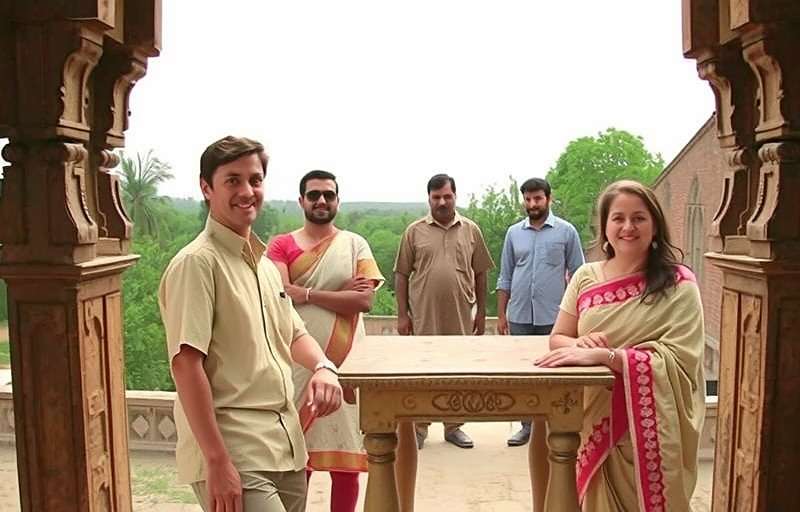
Cultural Preservation Initiatives
Beyond gaming and education, the Valpoi Victory community has taken on active roles in cultural preservation, using the game's popularity to raise awareness about endangered historical sites and traditions.
The "Save Our Forts" campaign, organized by Valpoi players, has raised over ₹20 lakh for the preservation of historical fortresses across India. The campaign uses in-game scenarios based on these forts to educate players about their historical significance before encouraging real-world support.
Players have also documented traditional martial arts from across India that are at risk of being forgotten, creating video archives and organizing workshops to teach these techniques to younger generations. Many of these martial arts have inspired in-game combat animations and unit abilities.
In recognition of these efforts, the Ministry of Culture has partnered with Valpoi Victory on its "India's Warrior Heritage" initiative, which uses the game to promote awareness of India's diverse martial traditions among younger generations.
These community initiatives demonstrate how Valpoi Victory has transcended its role as a game to become a platform for cultural preservation and education, making Indian history and traditions accessible and engaging for millions of players.
Future Updates and Expansions
The development team behind Valpoi Victory continues to expand the game based on player feedback and ongoing research into India's diverse military history. Here's what players can look forward to in upcoming updates:
Major Expansions Coming in 2024
The most anticipated upcoming release is the "Ancient Kingdoms" expansion, which will take players back to India's earliest recorded military history, featuring the Indus Valley civilization's defense systems, Vedic period warfare, and the Mauryan Empire's military machine.
This expansion will introduce entirely new unit types based on archaeological findings, including specialized elephant units, chariot warfare, and early infantry formations. Players will be able to relive the conquests of Chandragupta Maurya and the Kalinga War that transformed Ashoka.
Later in 2024, the "Maritime Empires" expansion will focus on India's naval history, from the ancient Lothal shipyards to the powerful fleets of the Cholas and Zamorins. This expansion will introduce more complex naval combat and trade route management.
"Maritime Empires" will feature historical scenarios including the Chola expeditions to Southeast Asia, the naval battles of the Portuguese-Indian conflicts, and the role of Indian ships in the Indian Ocean trade network.
The "Warrior Saints" expansion will highlight the spiritual dimensions of Indian warfare, focusing on warrior ascetics and religiously inspired military traditions from the Naga sadhus to the Sikh Khalsa. This expansion will deepen the game's Dharma system with new philosophical dimensions.
New Features and Improvements
Based on extensive player feedback, Valpoi Victory is introducing a "Mentor System" that will pair experienced players with newcomers, particularly in educational settings. This system will allow knowledgeable players to share historical insights alongside gameplay tips.
Technical improvements include enhanced AI that better simulates historical decision-making patterns, making enemy behavior more authentic to each period and region. The game's engine is also being optimized to run more smoothly on low-end devices, ensuring accessibility across India.
A new "Historical Accuracy" mode will be added for educational institutions, removing fictional elements and strictly following historical records. This mode will include detailed annotations explaining the historical basis for each unit, formation, and strategy.
The game's diplomacy system is being expanded with more nuanced relationship dynamics based on historical alliances and rivalries between specific regions and dynasties, creating more realistic political landscapes.
Regional Content Expansions
Responding to player requests for more localized content, Valpoi Victory is rolling out regional expansions throughout 2024 that will add depth to underrepresented areas:
The Northeast India expansion will feature detailed campaigns based on the Ahom-Mughal wars, the Kachari kingdoms' defense strategies, and the unique mountain warfare techniques of the Naga tribes.
Central India will receive expanded content focusing on the Gond kingdoms, their innovative fortifications, and their resistance against Mughal expansion. This will include unique jungle warfare units and tactics.
South India's expansion will add more content on the Chera, Pandya, and Pallava dynasties, with special attention to their naval traditions and diplomatic relations with Southeast Asian kingdoms.
These regional expansions are being developed in consultation with local historians and cultural experts to ensure authenticity and respect for each region's unique martial heritage.
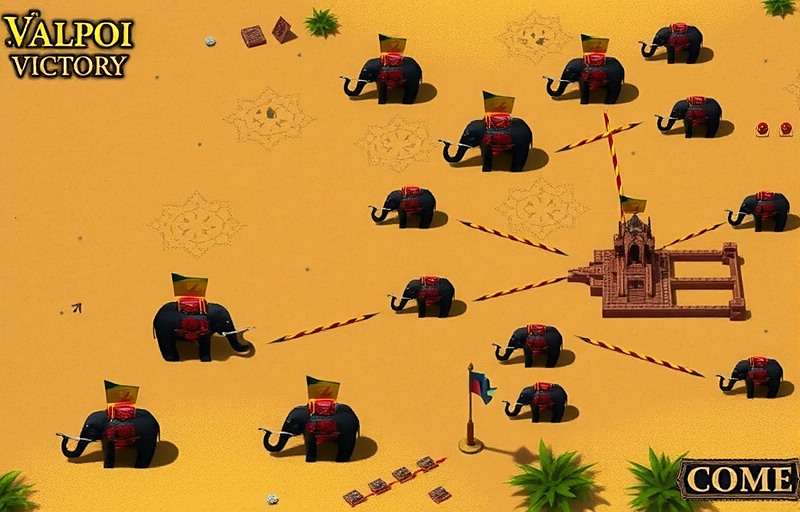
Educational Partnerships
The Valpoi Victory team is expanding its educational initiatives through partnerships with India's leading historical institutions. The National Museum in New Delhi is collaborating on a special "Artifact Mode" that will allow players to collect and learn about real historical weapons and armor.
A partnership with the Archaeological Survey of India will add accurate 3D models of protected monuments to the game, with proceeds from certain in-game items supporting conservation efforts. Players will be able to fight battles around virtual recreations of actual historical sites.
These educational partnerships reflect Valpoi Victory's commitment to not just depicting Indian history but actively contributing to its preservation and dissemination among new generations of Indians.
Educational Value and Academic Recognition
Valpoi Victory has gained widespread recognition for its educational value, transforming how Indian history, particularly military history, is taught and learned across the country. Its unique approach to blending engaging gameplay with accurate historical content has made it a valuable tool in both formal and informal education.
Academic Acceptance
Several leading Indian universities have recognized Valpoi Victory as an educational resource, including the University of Delhi, Jawaharlal Nehru University, and the University of Madras. These institutions have incorporated the game into their history and strategic studies curricula.
A study conducted by the Indian Council of Historical Research found that students who played Valpoi Victory demonstrated a 47% better retention rate of historical facts compared to students using traditional textbooks alone. The study attributed this improvement to the game's interactive nature and emotional engagement with historical events.
The game's historical accuracy has been praised by scholars, with Dr. Romila Thapar noting that "Valpoi Victory presents a more nuanced and regionally balanced view of Indian military history than many standard textbooks, which often focus disproportionately on northern India."
Teacher training programs in several states now include sessions on incorporating Valpoi Victory into classroom instruction. The National Council of Educational Research and Training (NCERT) has developed official lesson plans that use the game to teach students about medieval Indian kingdoms and their governance systems.
Historical Awareness
Valpoi Victory has played a significant role in raising awareness about lesser-known aspects of Indian military history, particularly regional traditions that are often overlooked in national curricula.
Players frequently report developing new interests in their regional history after encountering it in the game. A survey of players from Odisha found that 63% had researched the historical Paik soldiers after commanding them in Valpoi Victory, with many visiting local museums to learn more.
The game has sparked renewed interest in historical sites related to battles and military history. The Chittorgarh Fort authorities reported a 35% increase in visitor numbers following the release of the Rajput campaign, with many young visitors citing Valpoi Victory as their inspiration for visiting.
Historical societies across India have noted increased membership among young people, with many new members first learning about these organizations through Valpoi Victory's community forums and historical research groups.
Development of Strategic Thinking
Beyond historical knowledge, Valpoi Victory helps develop critical thinking and strategic planning skills that have applications beyond the game. Teachers report that students who play the game show improved problem-solving abilities and better understanding of cause-and-effect relationships.
Military academies in India have taken notice of the game's strategic depth, with some using modified versions of Valpoi Victory to teach basic strategic principles to cadets. The game's emphasis on logistics, terrain analysis, and resource management mirrors real-world military planning.
Business schools have also begun using Valpoi Victory in leadership and strategy courses, drawing parallels between historical military campaigns and modern business competition. The game's emphasis on alliances and resource management provides valuable lessons in organizational strategy.
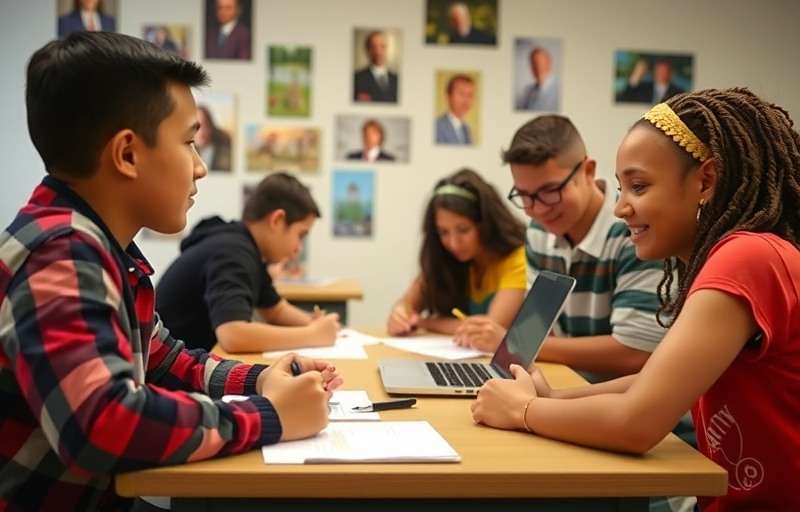
Promoting National Integration
Perhaps one of Valpoi Victory's most significant impacts has been its role in promoting national integration by helping players from different regions understand and appreciate each other's historical traditions.
A survey conducted by a leading Indian think tank found that players who regularly engaged with regional content from across India in Valpoi Victory demonstrated greater knowledge and appreciation of India's cultural diversity and were more likely to reject regional stereotypes.
The game's multiplayer mode, which requires cooperation between players from different regions to succeed, has created virtual communities that transcend real-world regional divisions. Many players report forming friendships with people from other states that they would not have otherwise connected with.
During times of regional tensions, Valpoi Victory has even served as a platform for promoting understanding, with special events that highlight historical examples of cooperation between the affected regions.
These educational and social impacts demonstrate how Valpoi Victory has become more than just a game – it's a cultural phenomenon that is helping shape how Indians understand their history, their diverse cultures, and their shared national identity.